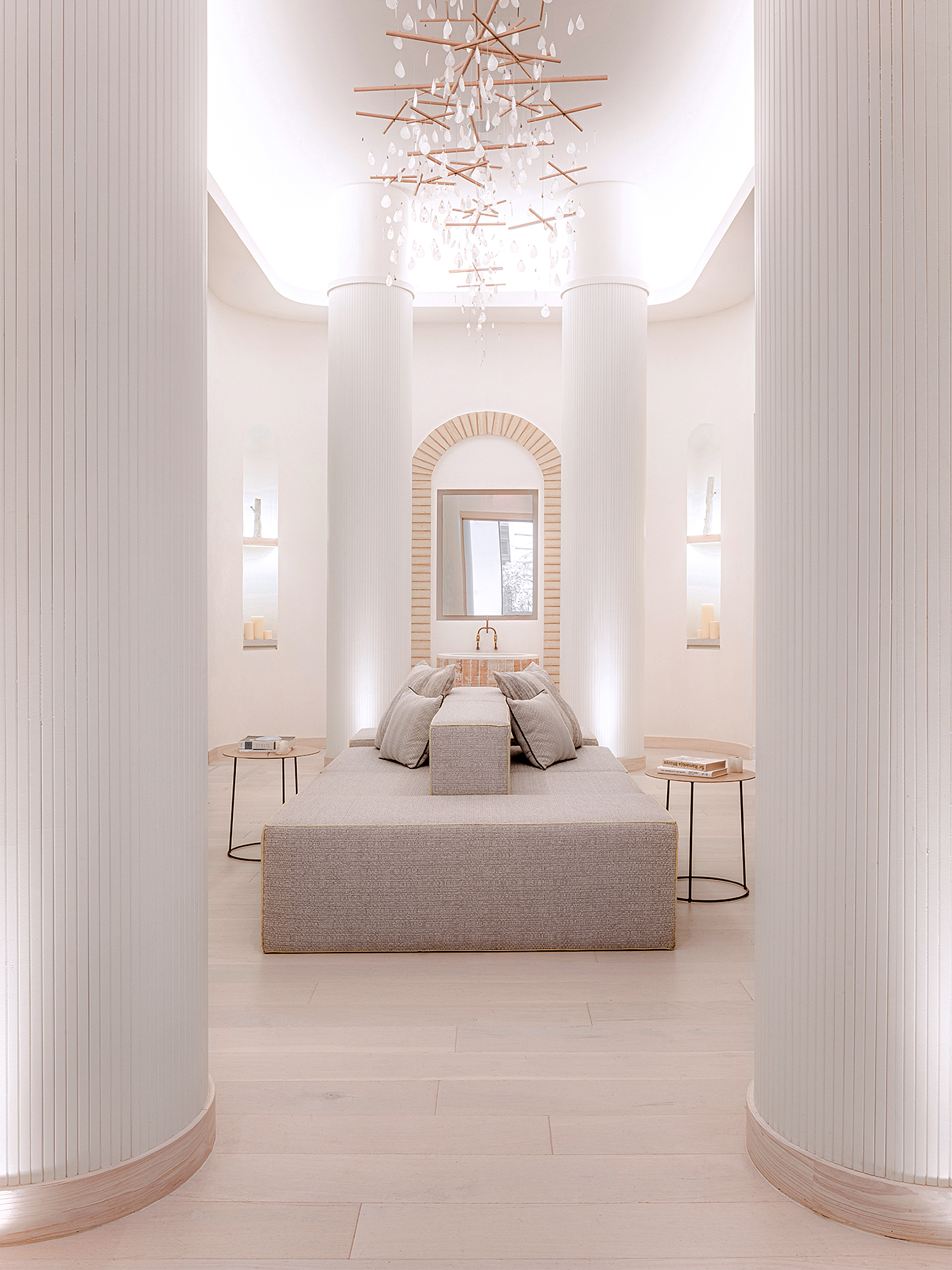We may earn revenue from the products available on this page and participate in affiliate programs.
Your plans for a night out with friends might involve drinks at your local bar, a reservation at that new restaurant in your neighborhood, and a movie with tons of Oscar buzz. But what if, instead, you sipped green juice as you got vitamin-filled IV infusions? A new crop of social clubs is hoping to change the way you hang out.
Self-care (beyond the cozy dinner at home and occasional hour of indulgent TV) is taking on another dimension. It’s important to prioritize your own personal wellness, sure, but doing that with the help of a community doubles the benefits. That’s why the latest health-focused hubs aren’t just focused on individual treatments; they want you to bring your crew along, too. “Spa culture a generation ago was centered around having isolated, precious experiences,” say Jason Goodman and Travis Talmadge, cofounders of the new spa Bathhouse in Williamsburg, Brooklyn. Their vision is inherently more social—sure, you might get a massage by yourself, but then you can hang out with your buds in the saunas and baths, and even grab a meal together afterward at the on-site Northern and Eastern European–inspired restaurant.

The new wellness clubs go beyond the traditional treatment rooms and are instead places where taking care of yourself becomes a bigger part of your everyday. “We’ve created fun events, whether it’s live music in the lobby or a sober bar night or a pop-up farmers’ market,” says Dr. Jonathan Leary, founder of Los Angeles’s recently opened Remedy Place, where you can get cryotherapy before hanging out in a bar with warm wood panels, cushy leather chairs, and a scattering of plants. “We’re not just having speakers come in to talk about a health topic—it’s more interactive and cool. Plus, it’s a way to build a community. ”

Making wellness social could be better for you. “Studies show that you’re more than twice as likely to reach your health goals if you have a support system,” says Rebecca Parekh, cofounder and CEO of New York City’s The Well. “Yet more than ever, people are living increasingly isolated lives.” The solution, then, is to turn “me time” into “we time”—something that many cultures have practiced for centuries (think: Turkish baths, Japanese onsens, and Icelandic thermal pools).
And because different people might need different kinds of R&R, many wellness clubs aren’t just single-treatment clinics, but rather holistically minded centers. “In the studio we’ll be doing everything from meditation to a sound bath to breathwork to stretching,” Leary says. An added budget-friendly bonus for all those communal good vibes: “If you can’t afford to sit with our nutritionist for $150 per hour, you could just buy into the class, like you would a yoga class, for $30.”

Taking care of yourself can—and sometimes should—be a group activity, as these clubs suggest, and it’s an idea that falls in line with other wellness-driven social trends we’ve seen of late (hello, chic nonalcoholic beverages). But that’s not to say you can’t also check into a club, get a massage, and simply zone out in a sauna in absolute quiet, all by yourself. “There are meeting spots—like the library, the pretreatment relaxation area, the lounge, and, of course, the restaurant,” Parekh says. “But if you want to get reflexology in silence, we supply noise-canceling headphones so you can do that, too.”
See more stories like this: This Is What a Sleep Expert Does When She Can’t Fall Asleep 6 Things to Remove From Your Bedroom for Better Sleep People Who Install This in Their Homes Save $130+ a Year
